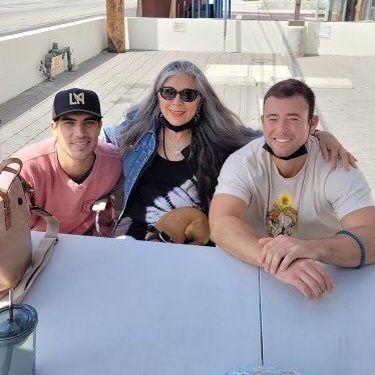“My parents knew one another for only three weeks before they conceived me. They decided to stay together and get married because of me, but they couldn’t have been two more different people. Their differences made it a really volatile household,” says Alex M., a current resident of BTS. “My parents fought all the time, but as the years went on the fighting eventually turned into a cold silence.”
Baseball had become Alex’s passion at a young age. “I had trouble fitting in as a kid growing up in Santa Cruz,” he says. “But baseball gave me the sense of belonging that I lacked in other areas of my life.” Alex, shy and awkward as a kid, had his first drink by the time he was fourteen. “I liked it, I liked it a lot,” he says. “It made me feel more comfortable with the other kids.”
Alex continued playing ball into high school. The baseball culture involved a lot of drinking, and Alex was all in. He had also become quite skilled at the game and had developed an integral role as a starting pitcher for the team, but Alex’s drinking had gotten heavier and things began to take a turn for the worse. Alex, along with the other players, had signed a zero tolerance contract with the coach and Alex was subsequently removed from the team after a couple of alcohol-related incidents had led to trouble with the law. Alex was allowed back on the team in his senior year and ultimately led the team to a title.
He managed to stay sober for his entire senior year, but shortly after graduation, he rewarded himself with a thirty-day drinking binge before he started a two-year stint at a junior college. “I had a good season at junior college and got signed to the University of Hawaii to play Division One baseball,” Alex says. But after a severe elbow injury and a felony conviction, Alex had to leave the island, and with it, his career in baseball. “I had lost my identity. Baseball was my everything—it was the only thing in my life that I took seriously and the only thing I had gotten any kind of recognition for.”
Alex found himself back in his childhood home. His parents, recently divorced, had gone their separate ways, and Alex was left with the keys to the castle. The house was turned into a party palace. Alex started charging for admission, and drugs were always a welcome payment method. Alex’s curiosity about harder drugs had gotten the best of him, and he began using ecstasy, cocaine, nitrous oxide and others. “I just wanted to feel better than I was feeling. I couldn’t keep a job, and with the felony, it was hard to get a job. It made the decision to move to Humboldt to grow weed an easy one.”
Up north, Alex embraced the pot-growing lifestyle. “My girlfriend’s family had shown me the ropes. There was a certain freedom to it that not many people ever get to experience. It was like living with a bunch of pirates in the middle of the forest. It was easy to connect with the others, because breaking the law was something we all had in common. We had nitrous and cocaine parties all the time—it had become an everyday thing.”
Alex had a few psychotic episodes. “I would go to the casino with a bunch of coke and a case of ‘whip-its.’ I’d get a room comped for a week and get high and gamble. I spent tens of thousands of dollars. I craved the excitement, but I started developing a lot of shame. That’s when I realized the ride was riding me, and it just isn’t fun anymore,” Alex says.
Alex moved to L.A. thinking the change would help, but it only kept him sober for a month. His job in the construction business wasn’t paying the bills, especially with a drug habit as big as his. “I took out a $4,000 dollar loan and spent it all on nitrous oxide,” he says. With L.A. being a bust, Alex headed back to Santa Cruz for a job opportunity. “An old friend offered me a good job working with him, and I tried getting sober again, but could only do it for a few months. I took on a second job driving Uber, but all my money I made was spent on drugs. I once froze my lungs and was hospitalized for it. That still didn’t stop me from getting using—I was getting high again within two weeks. It took another psychotic episode before I could finally surrender, and ask for help.”
A random run-in with an alum of BTS years ago is how Alex ultimately made the decision to come to check in to treatment. “I’ll never forget that conversation that I had, so when I realized I needed help, BTS was my first choice. Since arriving, I have found purpose again. I love helping people, and being a program facilitator allows me to do just that.”
Alex has also taken his cultivation skills and put them to good use, assisting with the gardening club. “Gardening can help us in myriad ways,” he says. “It helps our residents emotionally, mentally, physically, and spiritually. It gives us an opportunity to get closer to our higher power, and I’m happy to facilitate that.” Alex is back in school, and is planning on being a drug and alcohol counselor in the near future.
If you were moved by the story above, please consider making a donation to Beit T’Shuvah
today to help ensure the life-saving work we do continues. Every dollar makes a difference. You
can make a donation by going to https://beittshuvah.org/support/donate/ or emailing our
development department at development@beittshuvah.org
